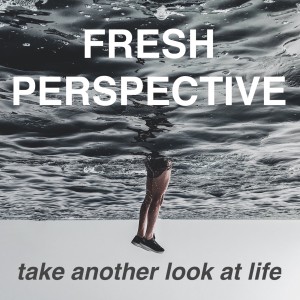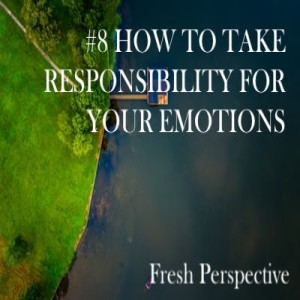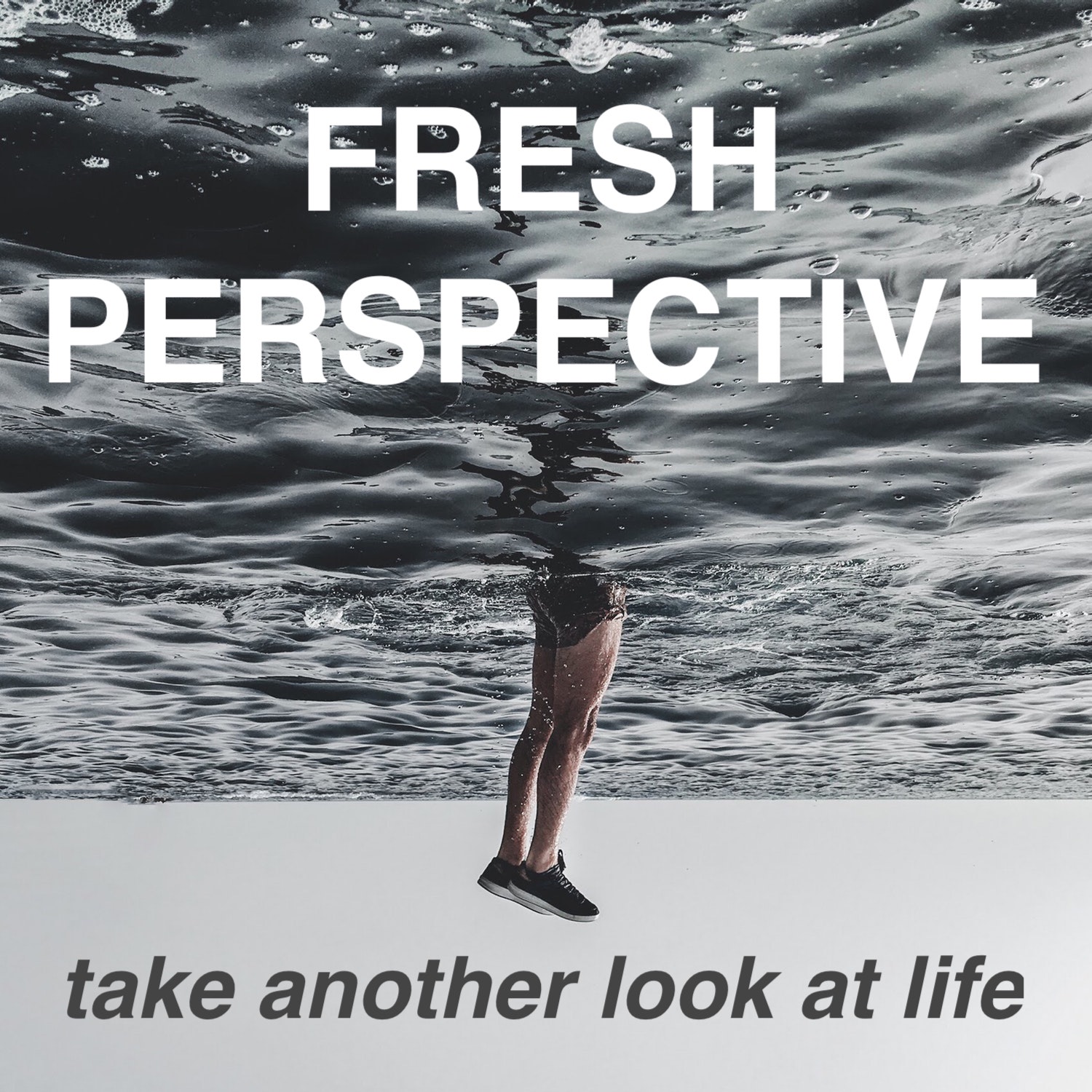Episodes

Friday Apr 10, 2020
#12 WHAT MAKES THIS GOOD FRIDAY? THREE CRUCIAL QUESTIONS
Friday Apr 10, 2020
Friday Apr 10, 2020
🇿🇦 SAFFA-EXCLUSIVE OFFER 🇿🇦 If you're a South African anywhere in the world, get free courses on personal development and relationships as well as access to community-exclusive webinars and events. ➡️ Click here to join or find out more.
— — —
We ask 3 important questions to help us reflect on Good Friday.
You can also subscribe to my newsletter here: FreshPerspective
Lekker!
Remember: Change your perspective and you can transform your life!
Much Love

Thursday Apr 09, 2020
#11 HOW I AM MAKING THE MOST OF THE CORONAVIRUS EFFECT
Thursday Apr 09, 2020
Thursday Apr 09, 2020
🇿🇦 SAFFA-EXCLUSIVE OFFER 🇿🇦 If you're a South African anywhere in the world, get free courses on personal development and relationships as well as access to community-exclusive webinars and events. ➡️ Click here to join or find out more.
— — —
I send a message to South Africa. It is my take on how to approach the 21-day lockdown.
You can also subscribe to my newsletter here: FreshPerspective
Lekker!
Remember: Change your perspective and you can transform your life!
Much Love

Wednesday Apr 08, 2020
#10 HOW TO TAKE RESPONSIBILITY FOR A MISTAKE
Wednesday Apr 08, 2020
Wednesday Apr 08, 2020
🇿🇦 SAFFA-EXCLUSIVE OFFER 🇿🇦 If you're a South African anywhere in the world, get free courses on personal development and relationships as well as access to community-exclusive webinars and events. ➡️ Click here to join or find out more.
— — —
We take a fresh look at mistakes and how we create problems for ourselves.
We also discover the most devastating effect of blame.
You can also subscribe to my newsletter here: FreshPerspective
Lekker!
Remember: Change your perspective and you can transform your life!
Much Love

Tuesday Apr 07, 2020
#9 HOW TO TAKE RESPONSIBILITY FOR YOUR NEEDS
Tuesday Apr 07, 2020
Tuesday Apr 07, 2020
🇿🇦 SAFFA-EXCLUSIVE OFFER 🇿🇦 If you're a South African anywhere in the world, get free courses on personal development and relationships as well as access to community-exclusive webinars and events. ➡️ Click here to join or find out more.
— — —
- What do you need to feel safe and secure?
- What do you need to feel alive, or excited?
- What do you need to feel that you’re significant?
- What do you need to feel that you belong and that you are loved?
- What do you need to grow and progress?
- What do you need to feel that you matter, that your life is meaningful?
You can also subscribe to my newsletter here: FreshPerspective
Lekker!
Remember: Change your perspective and you can transform your life!
Much Love

Monday Apr 06, 2020
#8 HOW TO TAKE RESPONSIBILITY FOR YOUR EMOTIONS
Monday Apr 06, 2020
Monday Apr 06, 2020
🇿🇦 SAFFA-EXCLUSIVE OFFER 🇿🇦 If you're a South African anywhere in the world, get free courses on personal development and relationships as well as access to community-exclusive webinars and events. ➡️ Click here to join or find out more.
— — —
- Have you ever been driving along innocently and then someone cuts you off?
- Have you ever been instantly offended by something someone said?
- Have you ever been angry because of the way people act?
- Have you ever bought something on a whim?
- Have you ever picked up your phone to do something important and put it down again 10 minutes later only to realize you never did that important thing?
- Have you ever said or done something that you regretted?
- Have you ever procrastinated?
If you answered yes to any of the above, you are just like me. You are an emotion-driven being.
You can also subscribe to my newsletter here: FreshPerspective
Lekker!
Remember: Change your perspective and you can transform your life!
Much Love
Francois

Sunday Apr 05, 2020
#7 THE OPPOSITE OF LOVE ISN'T HATE
Sunday Apr 05, 2020
Sunday Apr 05, 2020
🇿🇦 SAFFA-EXCLUSIVE OFFER 🇿🇦 If you're a South African anywhere in the world, get free courses on personal development and relationships as well as access to community-exclusive webinars and events. ➡️ Click here to join or find out more.
— — —
If you want more demand more. I'm not saying demand more from Society, from your spouse, from your kids, from your boss, from your employees, from the government or from life itself. I am saying demand more of yourself.
You can subscribe to the Fresh Perspective newsletter here.

Saturday Apr 04, 2020
#6 HOW TO TAKE RESPONSIBILITY FOR YOUR DREAMS
Saturday Apr 04, 2020
Saturday Apr 04, 2020
🇿🇦 SAFFA-EXCLUSIVE OFFER 🇿🇦 If you're a South African anywhere in the world, get free courses on personal development and relationships as well as access to community-exclusive webinars and events. ➡️ Click here to join or find out more.
— — —
If you have a dream of the future that creates inspiration, you will have the motivation to move towards That Dream in the present. As time passes you will look back and in your past, you'll find confirmation.

Friday Apr 03, 2020
#5 HOW TO LOVE
Friday Apr 03, 2020
Friday Apr 03, 2020
🇿🇦 SAFFA-EXCLUSIVE OFFER 🇿🇦 If you're a South African anywhere in the world, get free courses on personal development and relationships as well as access to community-exclusive webinars and events. ➡️ Click here to join or find out more.
— — —
One of the best things that my wife and I have done for our relationship is to have date mornings. These dates would start as soon as we got up and we each got a cup of coffee. Then we would do one of two things...
Enjoy!
You can subscribe to my newsletter here.

Thursday Apr 02, 2020
#4 HOW TO FEEL DEEPLY LOVED
Thursday Apr 02, 2020
Thursday Apr 02, 2020
🇿🇦 SAFFA-EXCLUSIVE OFFER 🇿🇦 If you're a South African anywhere in the world, get free courses on personal development and relationships as well as access to community-exclusive webinars and events. ➡️ Click here to join or find out more.
— — —
Whenever we talk about love we are attempting to demystify the mystical. And I'm keen to try...so let's go! ;o)
You can subscribe to my newsletter here.
Hope you enjoy!
Let me know what your new definition is...

Wednesday Apr 01, 2020
#3 HOW EXPECTATIONS AND RESPONSIBILITY ARE LINKED
Wednesday Apr 01, 2020
Wednesday Apr 01, 2020
🇿🇦 SAFFA-EXCLUSIVE OFFER 🇿🇦 If you're a South African anywhere in the world, get free courses on personal development and relationships as well as access to community-exclusive webinars and events. ➡️ Click here to join or find out more.
— — —
Let's look at the second way we avoid responsibility!
If you want to get my blogs and podcast and stuff in your inbox. Subscribe!
Lekker!
Much Love
Francois

